This is (Almost) 53: Fine Art Photographer Elinor Carucci Responds to The Oldster Magazine Questionnaire
"How we dread this word, menopause, like a curse. Who knew that so much good comes with this age as well, so much to celebrate. "
From the time I was 10, I’ve been obsessed with what it means to grow older. I’m curious about what it means to others, of all ages, and so I invite them to take “The Oldster Magazine Questionnaire.”
Here, fine art photographer Elinor Carucci responds. -Sari Botton
P.S. A reminder that in my book, everyone who is alive and aging is considered an Oldster, and that every contributor to this magazine is the oldest they have ever been, which is interesting new territory for them—and interesting to me, the 58-year-old who publishes this. Oldster is an ongoing study of the experience of aging at every phase of life.
When you see a piece featuring someone younger than you, try to remember when you were that age and how monumental it felt. Bring some curiosity to reading about how the person being featured is experiencing that age. Or, if you prefer, wait for the next piece featuring someone in your age group. Not every piece will speak to every reader. I’m doing my best to cover a lot of ground and to foster intergenerational conversation. Please work with me.
Elinor Carucci was born in 1971 in Jerusalem to a Jewish family of North African and Bukharian descent. She is an award-winning fine art photographer whose work has been featured in solo and group exhibitions worldwide, as well as in The New York Times Magazine, New Yorker, ARTnews, among many other publications. Carucci’s photographs are included in prestigious museum collections, including the Museum of Modern Art, the Brooklyn Museum of Art, and the Jewish Museum, in New York City. She currently teaches at the graduate programs of photography at the School of Visual Arts and is represented by Edwynn Houk Gallery.
She has published five monographs, including Midlife, a series about the underrepresented aspects of women’s middle age. In November 2023, Carucci published The Collars of RBG. The Jewish Museum, NYC, and the Edwynn Houk Gallery mounted exhibitions to coordinate with the book’s release. The Contemporary Jewish Museum, in San Francisco, will exhibit this series in December 2024.
—
How old are you?
I am 52 years old. I will turn 53 next week.
Is there another age you associate with yourself in your mind? If so, what is it? And why, do you think?
For some reason, I think about my older age often, and plan the kind of old woman I will be, sometimes down to the detail. I’m talking about being 75 or 80 or 85. What will I wear? How I will be funny, or active, or moving around? I don’t think of myself as an old woman, necessarily, but I feel that there will be something about that time that will be wonderful.
I remember photographing the incredible painter Agnes Martin when she was 92. She was so honest, so straightforward. There were no games, no facades. It felt so liberating. I remember photographing her and thinking, I’m looking forward to being an old woman.
I did the majority of my professional dancing in my 20s and early 30s, and I learned a lot about how to insert myself and my body into a situation, how to move around, dance, shake. It’s something that has stayed with me and makes me feel younger.
Do you feel old for your age? Young for your age? Just right? Are you in step with your peers?
I do feel young for my age, which is funny after my previous answer. A lot of it has to do with having been a professional dancer for many years, which kept my body strong and flexible, and gave me the body language of a dancer that I hope will always stay with me. Especially because I used to be a belly dancer—a Middle Eastern dance form that is all about engaging people and bringing joy to people. I danced in a lot of weddings, Bar Mitzvahs, birthday parties. I always feel this dancer in me. I did the majority of my professional dancing in my 20s and early 30s, and I learned a lot about how to insert myself and my body into a situation, how to move around, dance, shake. It’s something that has stayed with me and makes me feel younger.
What do you like about being your age?
I actually like most of it, other than some things that are happening to my face that I don’t necessarily like. I’m talking about wrinkles, or things that are happening to my face that make me look like I am upset or angry. I feel angry about that process.
But I do appreciate feeling calmer and more relaxed, and also my ability to deal with crises, with people’s egos, with family members whom I love. I’ve learned a lot over the years. I’ve been a mother, and that has given me wisdom. I learned a lot raising my children in a country that is not my home country. I mainly learned—it seems like a simple thing—that there are very few things that are really urgent and critical; all the rest I can probably deal with very well if I just stay calm and open.
What is difficult about being your age?
Mainly dealing with the fact of time passing. My parents are older—in the coming years I will probably lose them. My children will eventually leave home. They’re still in college, so they are in-and-out of home these days. The feeling of time passing and mortality is difficult.
What’s surprising to me is that we think of younger people as wild and free and open and interesting. Many times, it is exactly the opposite. Younger people can be heavy, taking everything so seriously. While sometimes older people are freer. They definitely have more of a sense of humor and lightness about things. So, it’s often exactly the opposite of what I anticipated.
What is surprising about being your age, or different from what you expected, based on what you were told?
I had good role models. I remember both my Mom and my Grandma always being very strong and opinionated—strong willed, beautiful, sexy. I didn’t grow up thinking that women in their 50s are already old. This is not what I experienced in my family. I saw a lot of energy, a lot of fire, passion, beauty, and glamour in the women in my family, late into their 50s and 60s, even 70s.
What’s surprising to me—this is something that comes from society—is that we think of younger people as wild and free and open and interesting. Many times, it is exactly the opposite. Younger people can be heavy, taking everything so seriously. While sometimes older people are freer. They definitely have more of a sense of humor and lightness about things. So, it’s often exactly the opposite of what I anticipated.
What has aging given you? Taken away from you?
Aging has given me calmness, compassion, acceptance, understanding—understanding of situations and people, and a kind of wisdom—"old and wise,” it’s not just a cliché.
It has taken possibilities away from me. There are certain things I’m not going to have the opportunity to do any longer. There are certain things that are just not possible. I made my choices—and I probably made the majority of choices in my life: how many kids to have, my profession, whom to marry and have children with, the country I am living in. A lot of my life is already known right now.
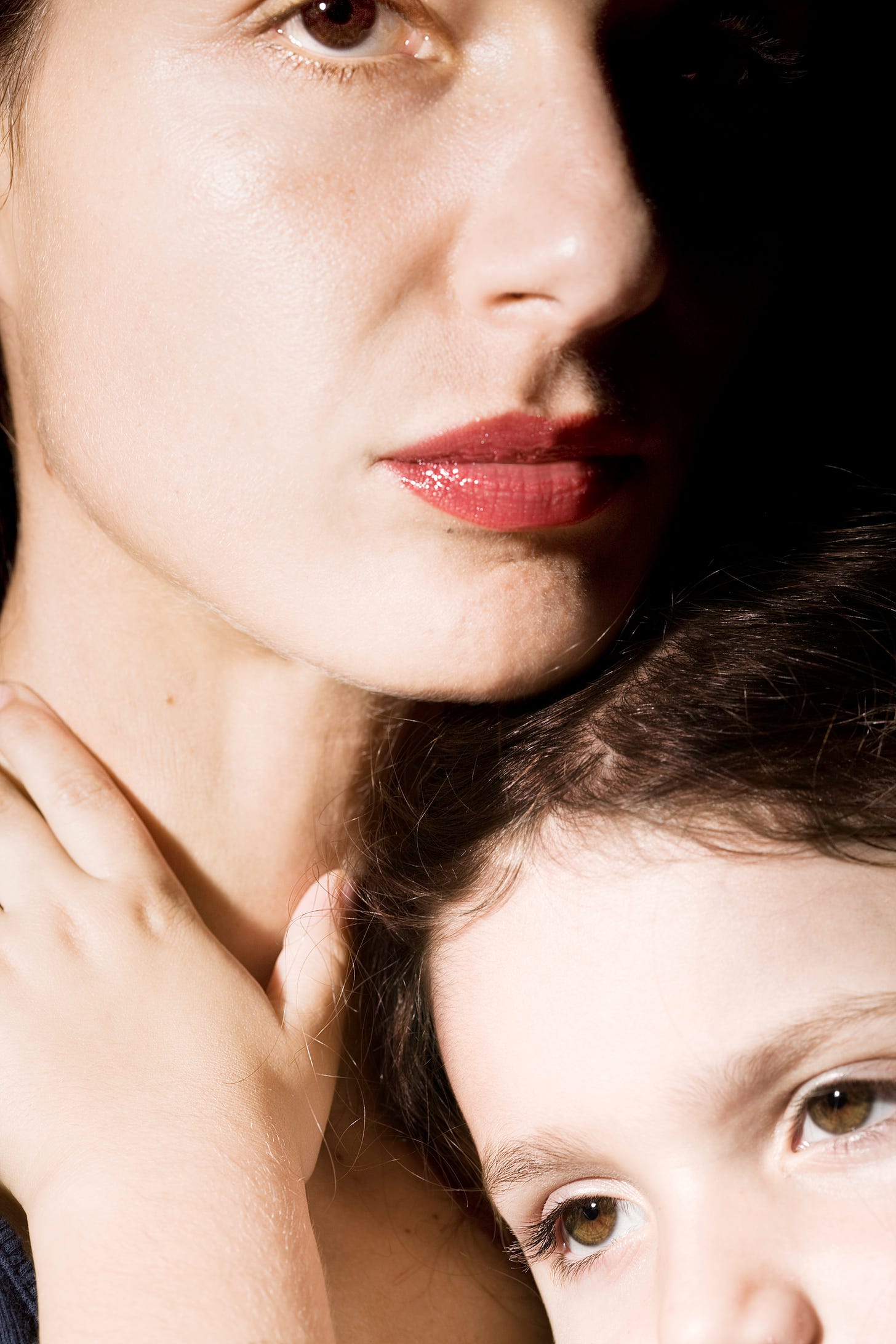
How has getting older affected your sense of yourself, or your identity?
I’m 52, I moved to NYC when I was 24, so I will probably live in the United States for my whole life. This affected my sense of myself and how I see things, how I navigate the world, how much I had to learn and adjust. I wouldn’t say getting older affected my sense of identity, per se, it’s what happened over the years as I was getting older. The experience of motherhood, of giving life, and raising another human being and being there for all those stages they are going through. It’s very humbling. You learn a lot about yourself and about your child.
How we dread this word, menopause, like a curse. Who knew that so much good comes with this age as well, so much to celebrate. Some suffering also comes, yes, from our aging bodies, but suffering also comes from the messages we receive from our society, and this part we can fight and change. Let’s celebrate how much better we are professionally—we should get more opportunities and better pay, goddamn it! Let’s also celebrate how much we love more, laugh more, know more.
What are some age-related milestones you are looking forward to? Or ones you “missed,” and might try to reach later, off-schedule, according to our culture and its expectations?
My personal work comes from an autobiographic source. By going as deep as I can into my own life and the life of my family, our intimacy and emotions, I’m trying to create work that is universal in its themes.
One of the reasons I can do this is because there are some things that are traditional in my life: I got married, I have children, I have a mortgage, I have a group of friends whom I love, I have a community, I am paying the bills. So, I did the milestones. I started a career and I’ll probably, at some point, in ten years or so, become a grandmother, which is something I am looking forward to.
There are milestones that I want to reach professionally. I want to have more exhibitions in more countries and share my work with more audiences. Maybe it stems from my need as an artist to communicate global themes that relate to any human being, themes that are not limited to a specific religion or country or culture, and maybe it is just my ego wanting more exposure, more exhibitions, and more publicity. Should I feel embarrassed by this need? Should we, as a society, encourage this ego-motivated ambition of women? If we want women to get further in their careers, and to equal their achievements to men’s, we should.
I’ve had an interesting life, but I have always been very serious and focused. I never traveled the world just for the sake of discovering places, I never did drugs, I never drank (or, very little). Maybe I’ve had too many milestones! I’m always so focused on doing the best job that I can—as a Mom, as a photographer, even as an immigrant, adjusting to life in America and trying to do just as well as those who were born and raised here. There was so much to learn—even just realizing that learning and improving are needed and required was challenging. I felt an enormous amount of guilt for leaving my country and parents and immigrating here, which I think compells me to work very hard, never stop, never take time off when I am sick. So maybe I’ve been too focused on reaching milestones and achievements and never letting go and going wild and feeling aimless. This is perhaps something that I missed.
My mother is 72 and she is an inspiration to me. She was always an inspiration, beautiful and dramatic—a diva. She never stopped living her life, even after she went through difficult experiences. She divorced about fifteen years ago when she was in her late 50s and started working for the first time. She found the love of her life three years ago, when she was 69. They are so in love and they are living their lives to the fullest. She is getting married this month.
What has been your favorite age so far, and why? Would you go back to this age if you could?
I know it’s a cliché but I’ve found beauty in every age, and terribleness in every age, too. I loved being in my early 20s and going to art school in Jerusalem. I learned a lot there. It was also very difficult in my mid-20s because I moved to New York and tried to create a home for myself here. There was a lot of excitement and discovery but also truly miserable days, especially the first few years in America.
Then I loved becoming a mom. Never before had I experienced so many emotions at the same time—getting to know myself better, the worst and the best in me, and stretching myself to the corners of my capabilities to raise my children, every smile of theirs the height of happiness, but also realizing that every mistake I make might scar them, sometimes forever. I also felt motherhood made me a better artist; I could see and feel more, not only of me and my children, but of the world around me.
But I love being my age. I don’t feel young but I don’t feel old. It is the best of many worlds. My kids are still here and part of my life. They’re home a lot. But they’re not little children, they’re almost 20. I love my age. This age also motivated me to create and publish what I feel is my best work, my book Midlife, which I published in 2019.
How we dread this word, menopause, like a curse. Who knew that so much good comes with this age as well, so much to celebrate. Some suffering also comes, yes, from our aging bodies, but suffering also comes from the messages we receive from our society, and this part we can fight and change. Let’s celebrate how much better we are professionally—we should get more opportunities and better pay, goddamn it! Let’s also celebrate how much we love more, laugh more, know more.
I did Botox. Don’t kill me! I am a feminist, I swear to God. I wanted to look young, I admit it, and I wanted to get my old expression back, and not look grumpy…yes, those deep lines between my eyebrows made me look angry. I was angry at the wrinkles for making me look angry! I still struggle with whether I’m giving in to what I’m fighting against.
Is there someone who is older than you, who makes growing older inspiring to you? Who is your aging idol and why?
My mother is 72 and she is an inspiration to me. She was always an inspiration, beautiful and dramatic—a diva. She never stopped living her life, even after she went through difficult experiences. She divorced about fifteen years ago when she was in her late 50s and started working for the first time. She found the love of her life three years ago, when she was 69. They are so in love and they are living their lives to the fullest. She is getting married this month.
She is a person who touches life. She embraces being in her 70s in a way that is exceptional yet very natural. She is very energetic, always learning. She has close friendships and is a lover of the arts. So yes, she is an inspiration, as are Louise Bourgeois and Agnes Martin and Sally Mann, whom I don’t know personally but I’ve always been inspired by.
Another idol is the late Justice Ruth Bader Ginsburg, a woman I have looked up to and admired for so many years. She was brilliant, hard-working, and compassionate; she was a Supreme Court judge, mother, and wife. She was a Jewish woman, who dealt with discrimination, and a daughter of immigrants who fought her way to becoming one of America's most prominent figures. She fought tirelessly for opportunities, justice, and equality throughout her life, changing Americans’ lives. I loved how she maintained her grace and sense of style as she grew older, even as she faced cancer in her older years. Her workout routine was an inspiration to me and to many women, old and young. “I do a variety of weight lifting, elliptical glider, stretching exercises, push-ups,” she explained in 2014. “And I do the Canadian Air Force exercises almost every day.”
I loved how [Ruth Bader Ginsburg] maintained her grace and sense of style as she grew older, even as she faced cancer in her older years. Her workout routine was an inspiration to me and to many women, old and young. “I do a variety of weight lifting, elliptical glider, stretching exercises, push-ups,” she explained in 2014. “And I do the Canadian Air Force exercises almost every day.”
In October 2020, I was fortunate enough to get an assignment from Time magazine to photograph Justice Gisngburg's collars at the Supreme Court. This assignment received so much love and attention that it turned into a book, The Collars of RBG, which was published in 2023.
What aging-related adjustments have you recently made, style-wise, beauty-wise, health-wise?
I did Botox. Don’t kill me! I am a feminist, I swear to God. I wanted to look young, I admit it, and I wanted to get my old expression back, and not look grumpy…yes, those deep lines between my eyebrows made me look angry. I was angry at the wrinkles for making me look angry! I still struggle with whether I’m giving in to what I’m fighting against.
Style-wise, I feel that I’ve actually become insecure. I seek advice now more than I did when I was younger, asking my daughter, who is almost 20, for her opinion. Because I still think of myself as the same dancer that I was, in the same body, I sometimes worry that what I am wearing isn’t appropriate. So, style-wise I am not as confident as I used to be when I was younger. I am working on it.
In 2015, after I had a hysterectomy, I was overcome with a sudden and overwhelming sense of loss, not only because I was losing my uterus but also because I was losing my fertility, and what felt like my youth. As soon as I woke up from surgery, I took a photograph of my uterus under the bright hospital lights and my two strobes—for my Midlife series. My husband and gynecologist helped coordinate the photoshoot.
I didn’t know it then, but I know now that I was right to go through the huge effort to take this picture. It was only after I looked at the photograph that I understood that all of my work over the previous two years—work that I sometimes felt I did because I was lost as an artist, not coherent or experimental—was indeed coherent, was accurate, was work about being in my midlife. I took this picture in order to see my own life, to undersand my own work. And once again, as they have many times before, my photographs told me more than I knew and could understand on my own. Out of this painful loss, I gained a photograph and an understanding that led to acceptance and growth, and to defining and publishing and sharing work about being middle-aged, but also about a new and powerful chapter in my life, in all women’s lives.
What’s an aging-related adjustment you refuse to make, and why?
I’ve always been a clown, acting silly, imitating my mom and brother, jumping up and down, and behaving like a toddler. This is something I refuse to stop. I don’t care if I look or seem ridiculous, if it’s inappropriate or appropriate. It’s like air to breathe for me. I will always be silly and funny and make jokes and imitate and jump up and down and make funny faces. I’m not giving that up.
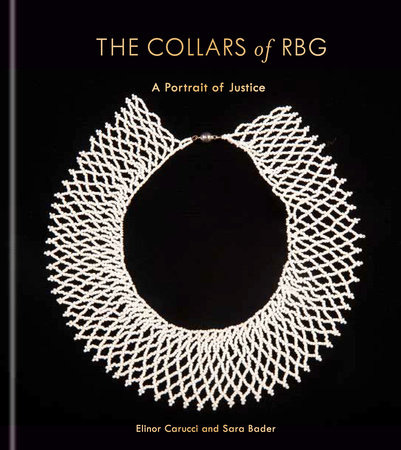
What’s your philosophy on celebrating birthdays as an adult? How do you celebrate yours?
This is very, very bad—but also liberating. I tend to get a little sad on my birthday. Another year has passed by, and I’m not fooling myself into celebrating this loss of another year. I’m a year closer to death now. I know it sounds very grim, but it is how I feel about it…and it is true!
I’m going to be 53 next week. I’ll probably go out with my husband and kids. I tell everyone, “Don’t buy me anything, I don’t need anything.” Just like my aunt Ilana used to say when she was my age, only now I understand her. I don’t want to make a big deal of it, I don’t want to burden my husband with having to find a gift or to arrange an event. So, nothing, nothing! Let’s get a piece of cake or watermelon—watermelon is my favorite food. Often on my birthdays, my husband and kids cut a watermelon in half and stick candles in it and wish me a happy birthday. Just to be together, that’s enough. Actually that’s a lot. So maybe there’s a lot to celebrate, after all.





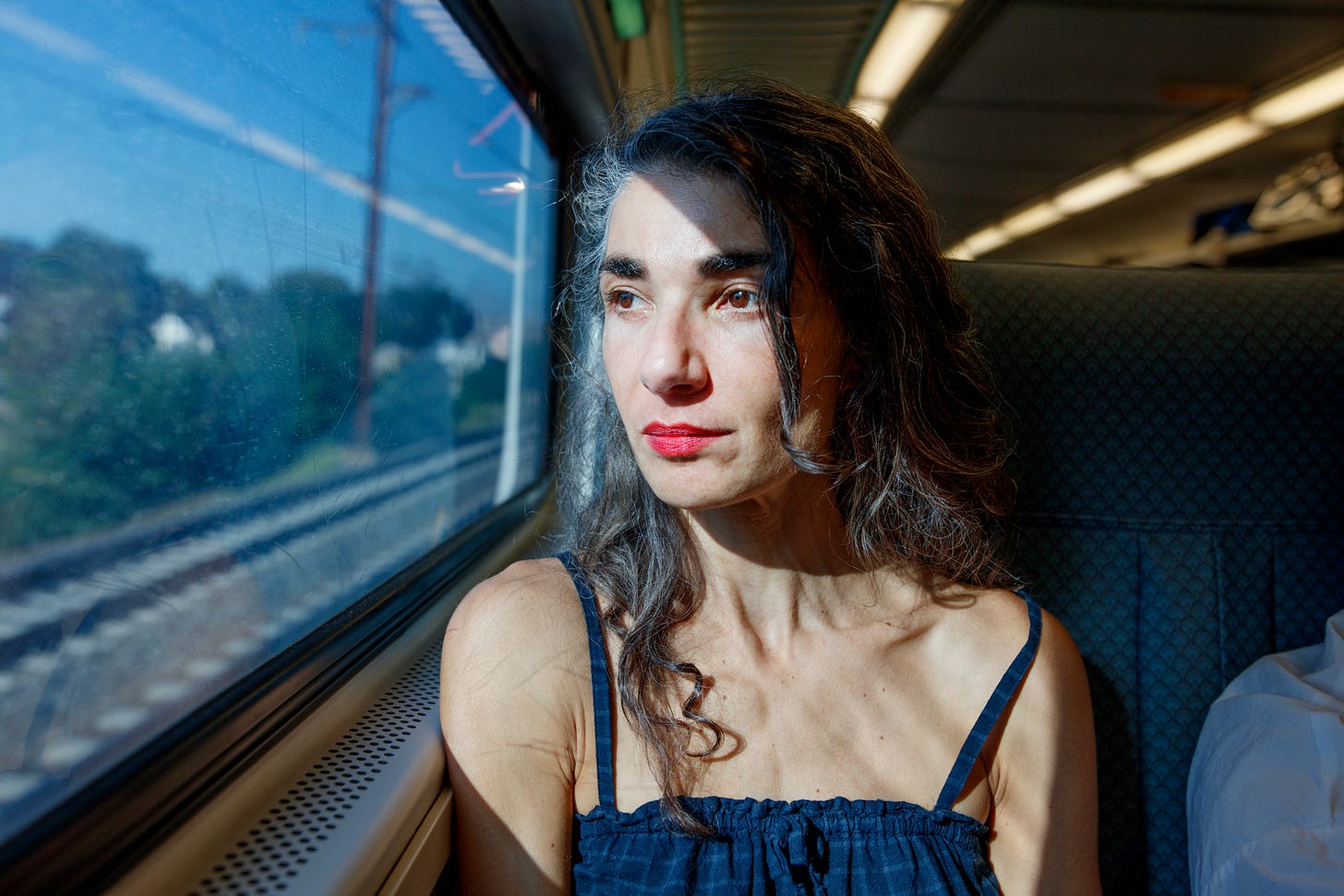
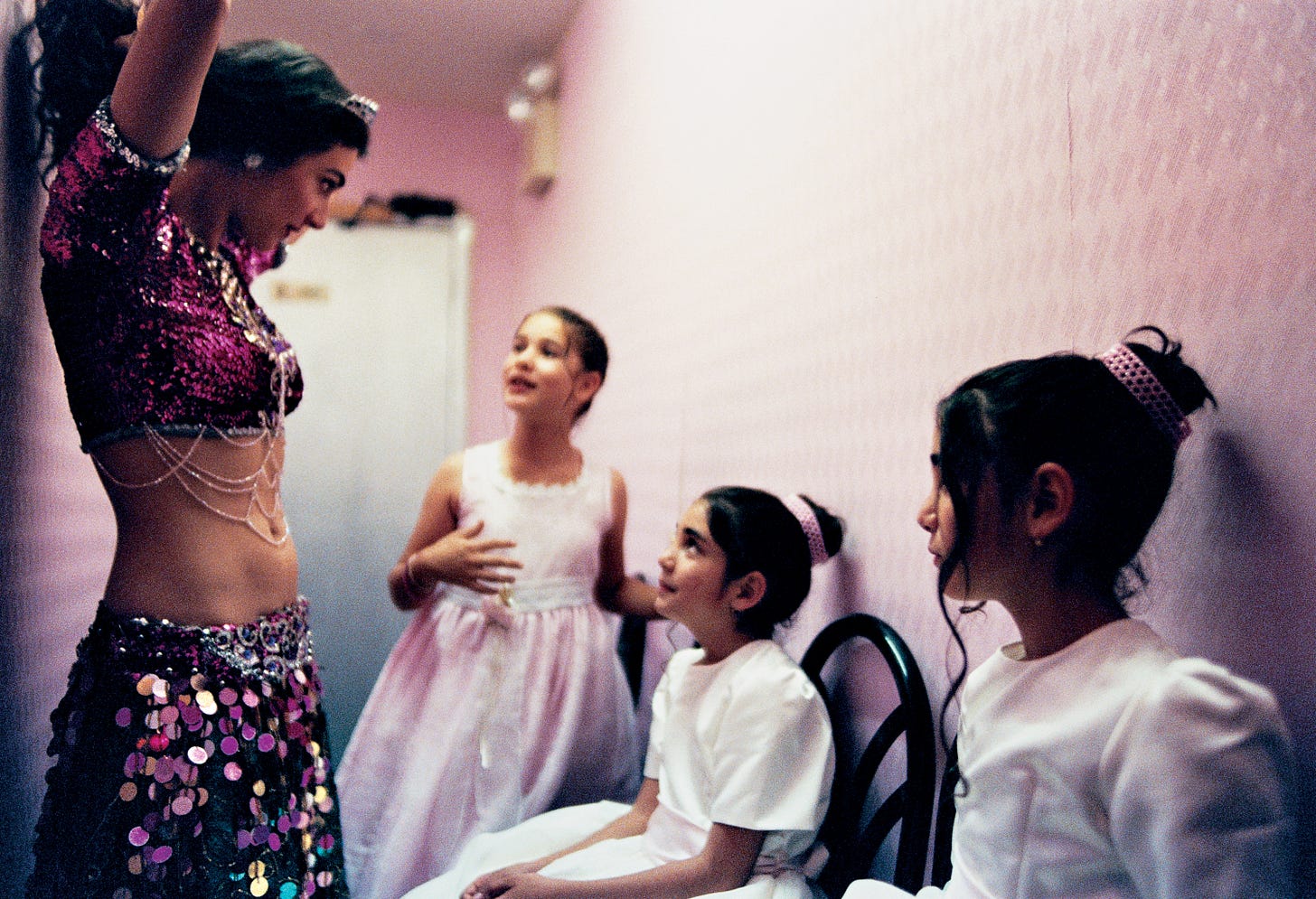
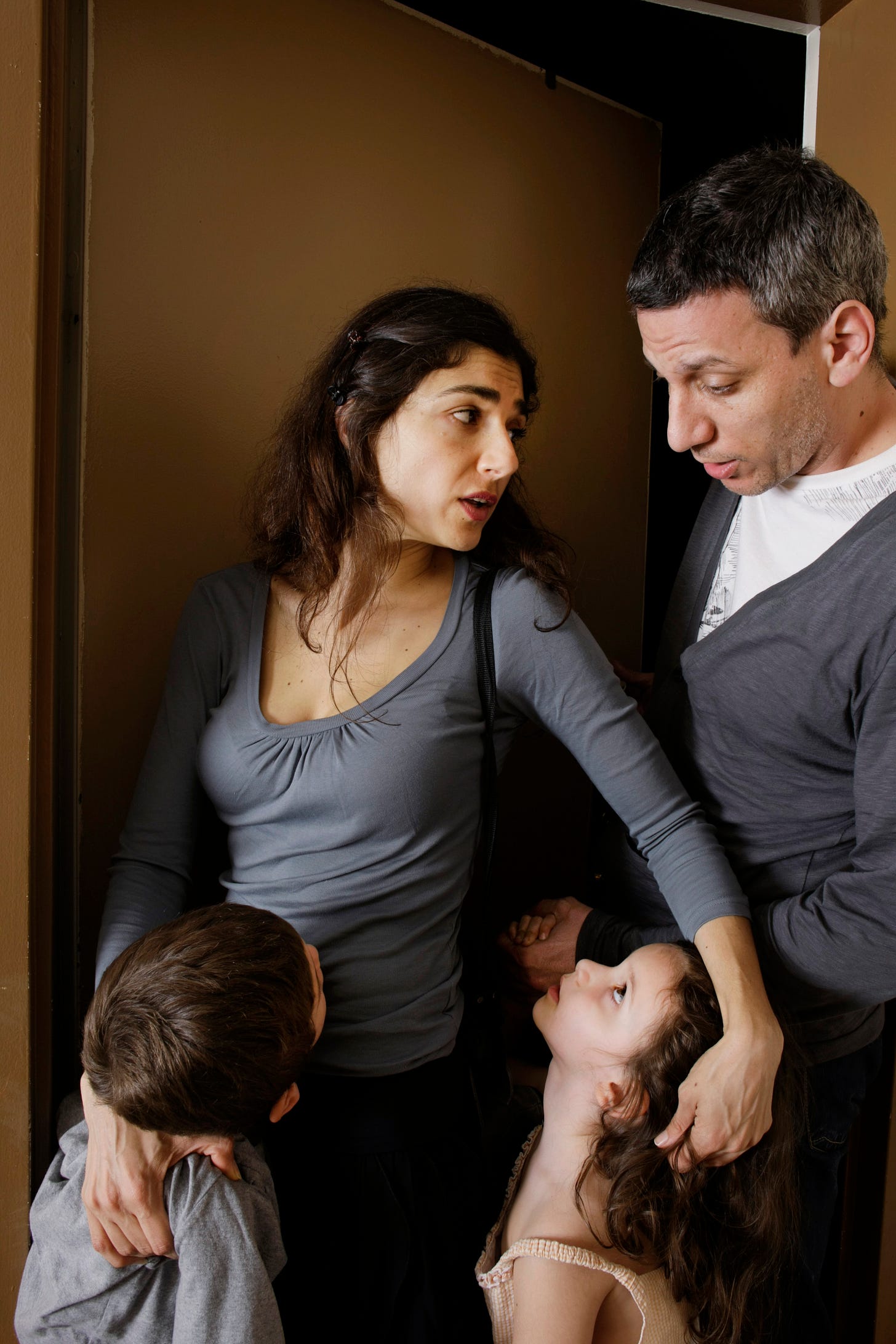
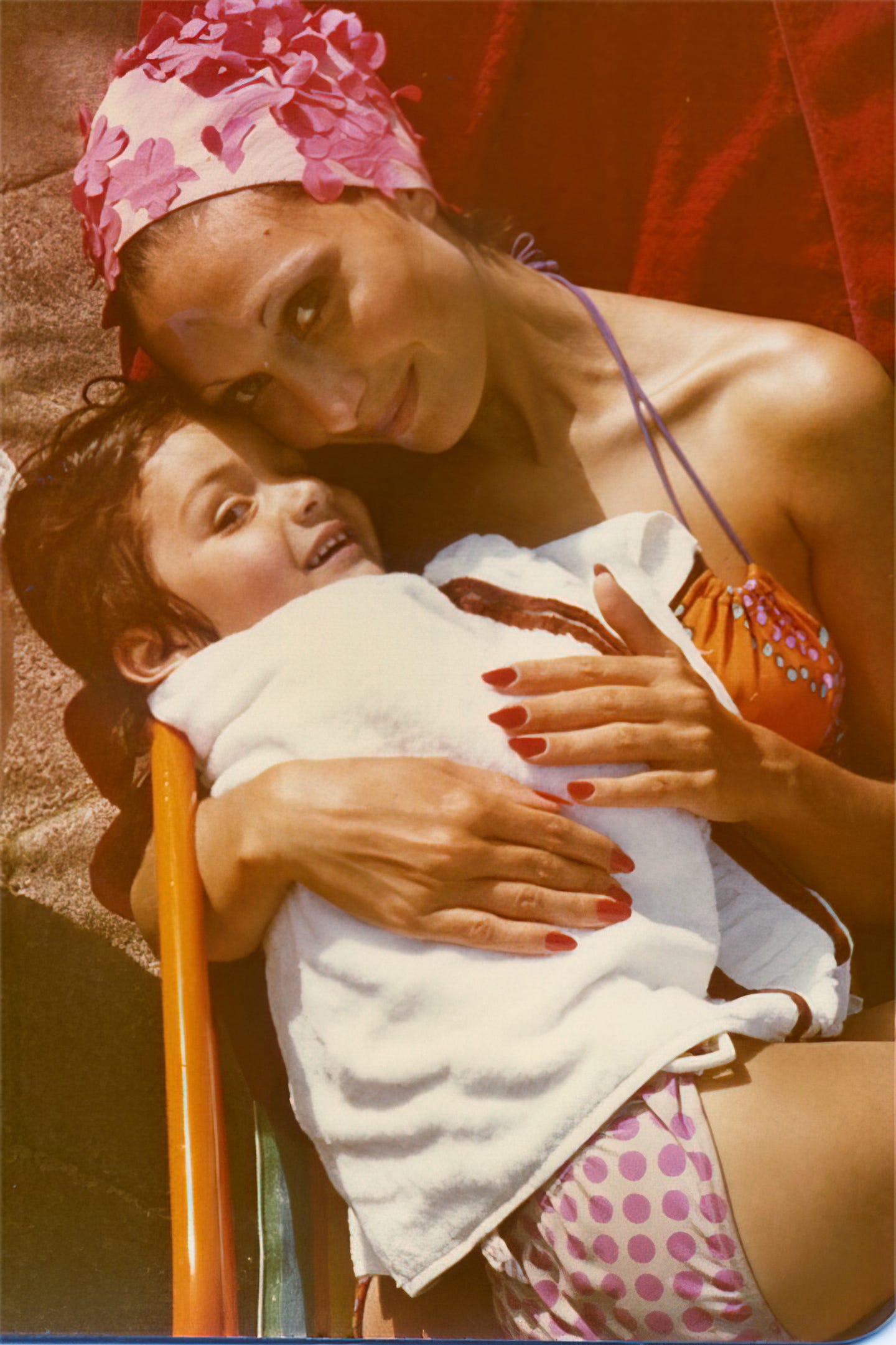
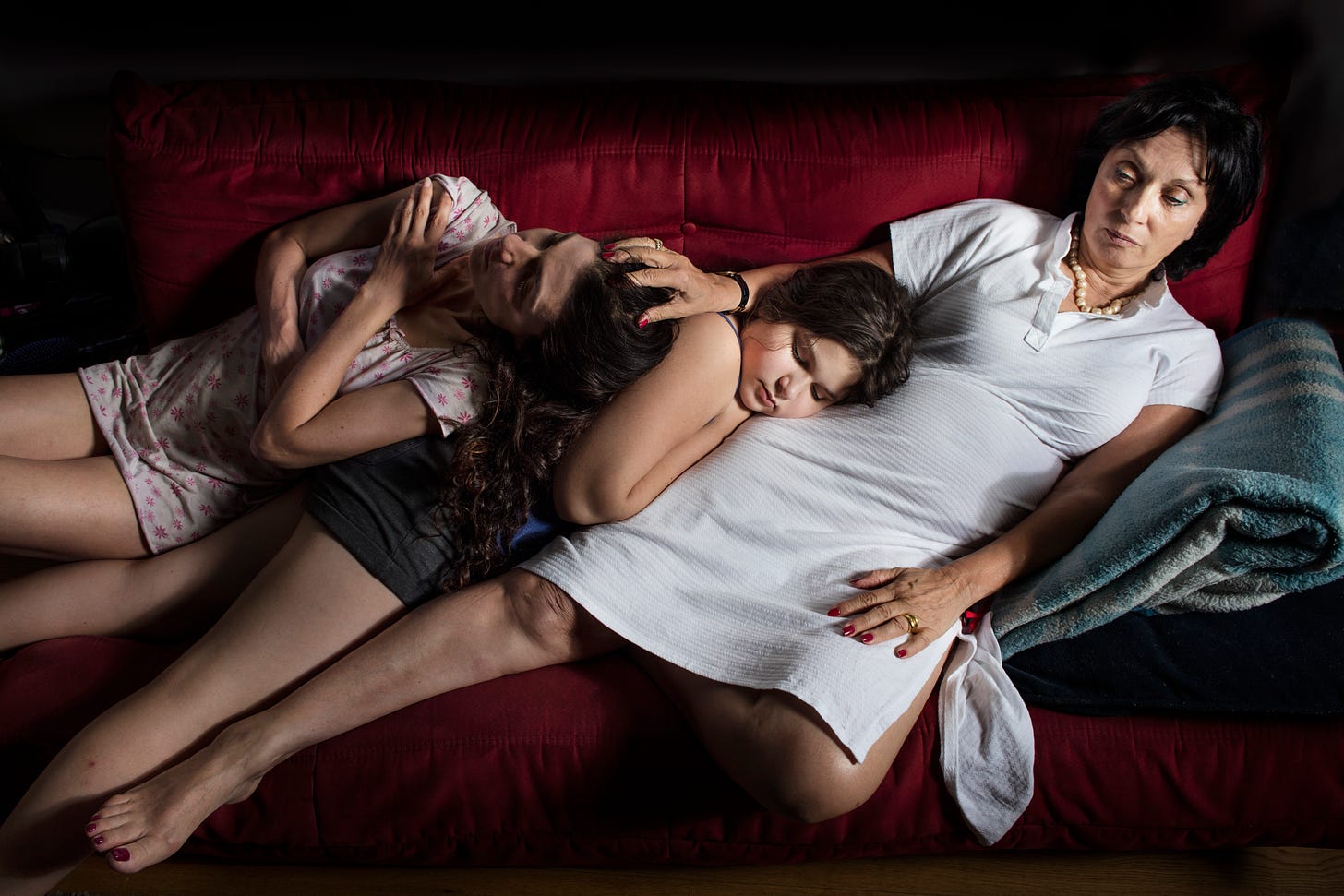
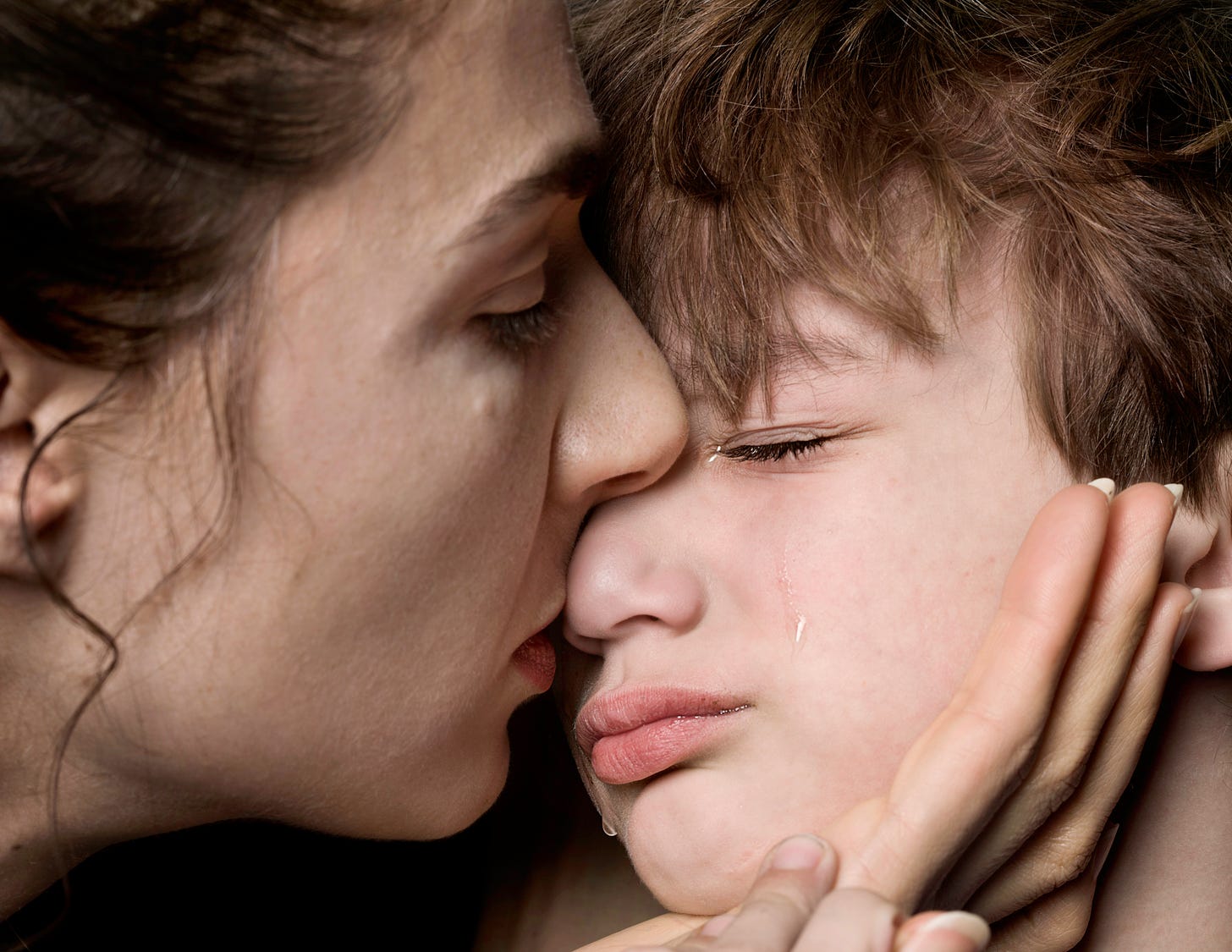
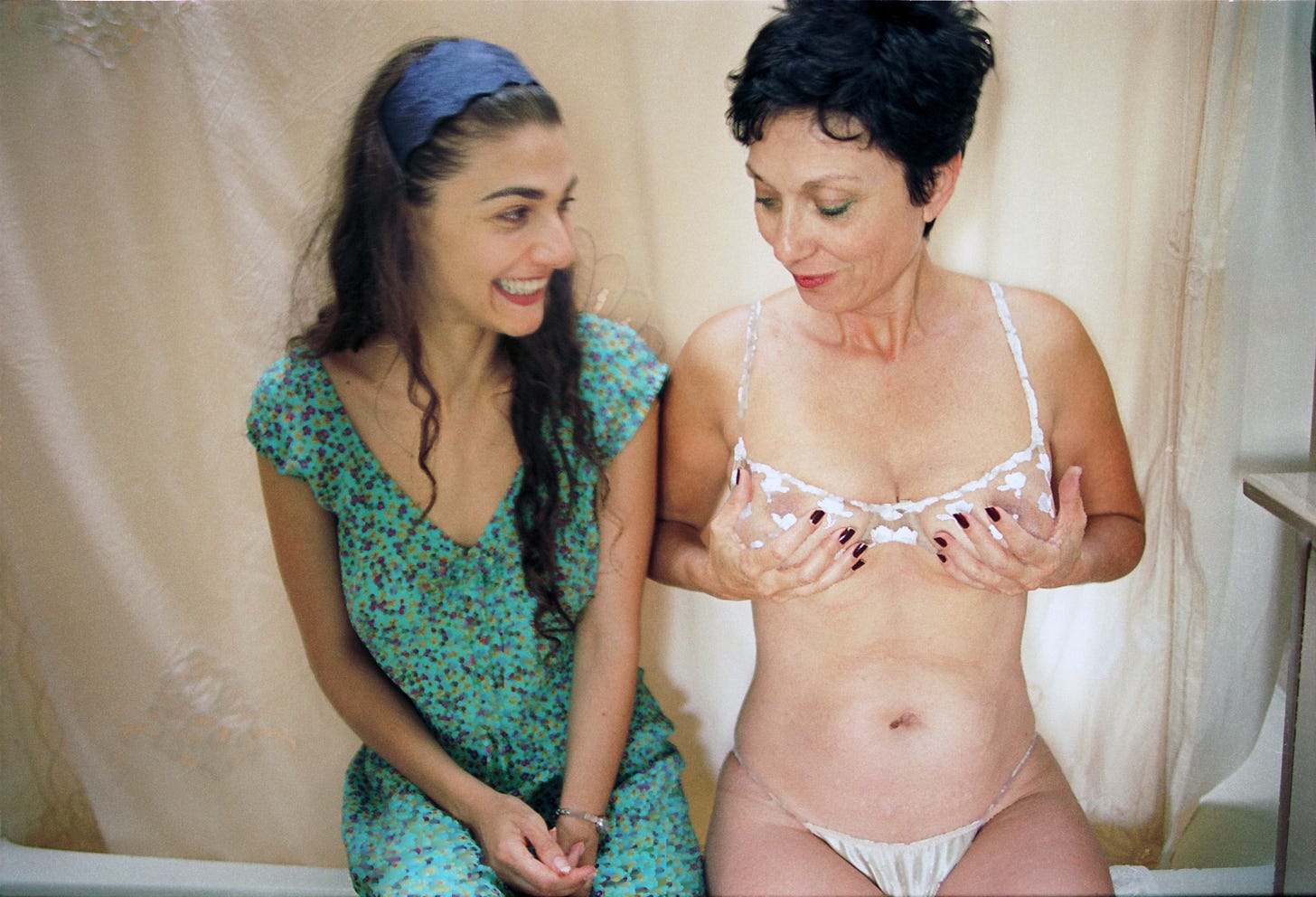
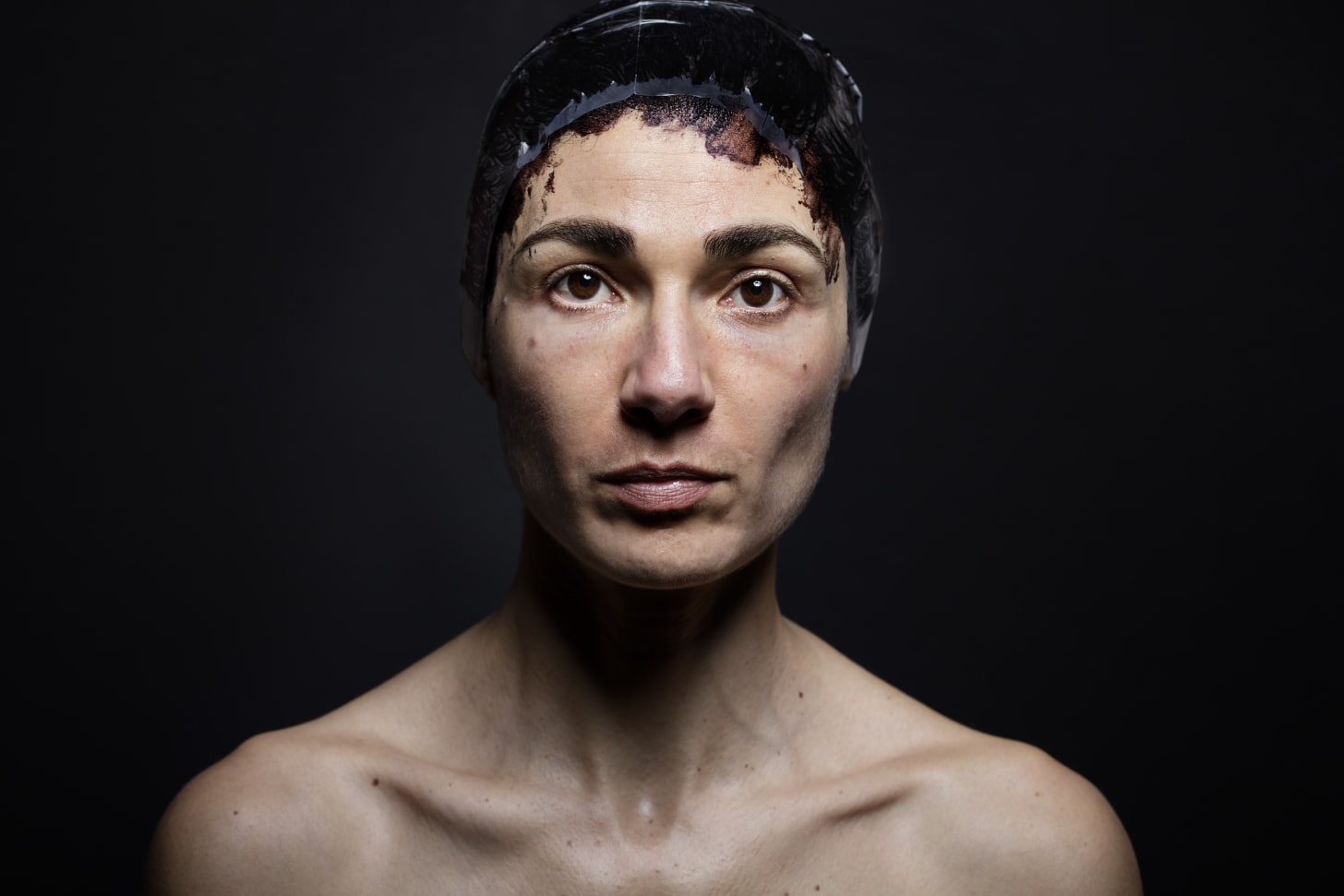
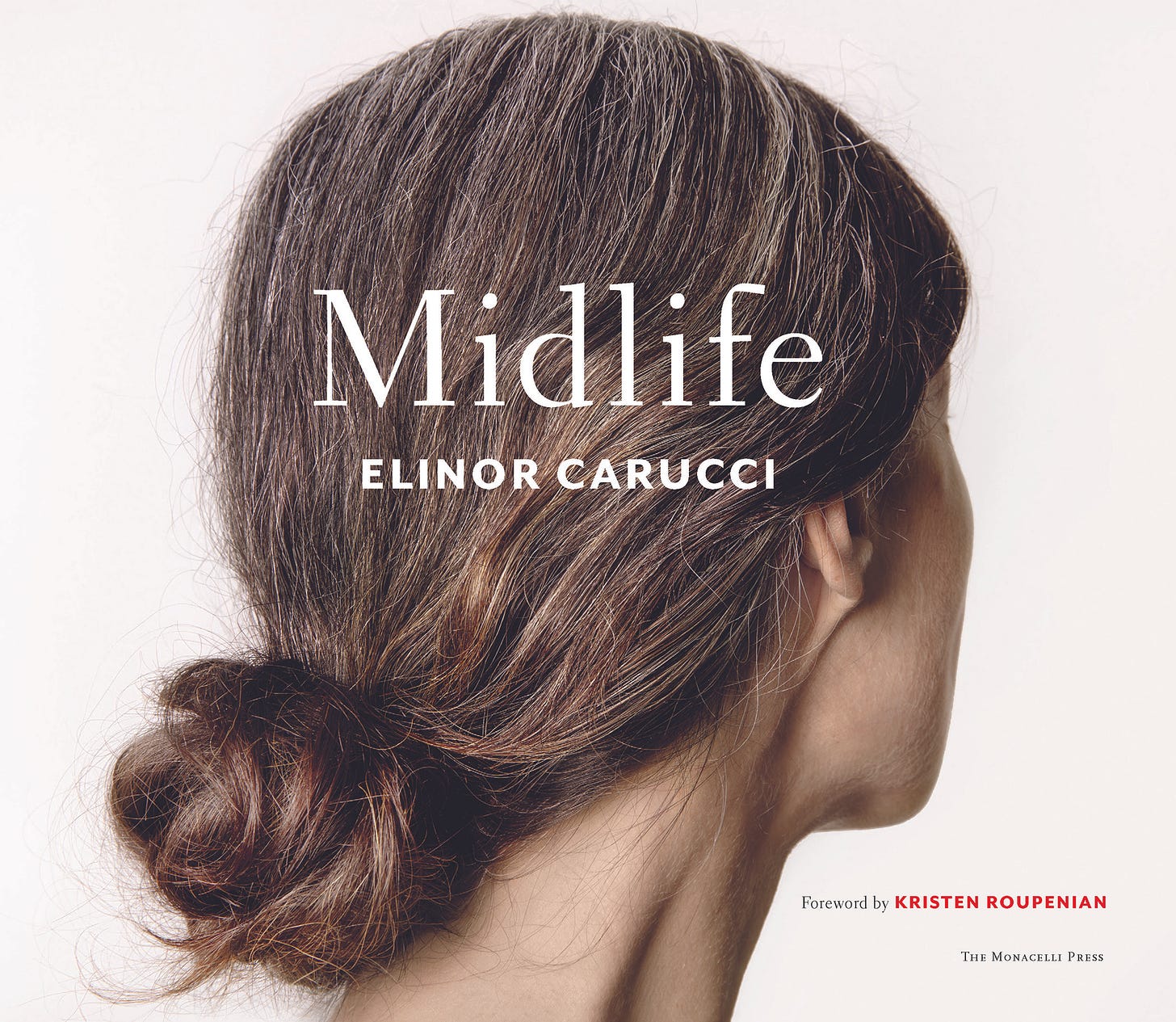
Part of the wisdom of age (I am 82) is knowing when to let go. I retired from a very powerful and rewarding job at age 56. Never regretted the loss of power and prestige. RBG clung to both and the result (in part) was the downfall of Roe. I can’t forget or forgive her decision.
Loved the interview, including the photographs.
I found this insight to be wise and true for me (age 62).
"What’s surprising to me—this is something that comes from society—is that we think of younger people as wild and free and open and interesting. Many times, it is exactly the opposite. Younger people can be heavy, taking everything so seriously. While sometimes older people are freer. They definitely have more of a sense of humor and lightness about things. So, it’s often exactly the opposite of what I anticipated."